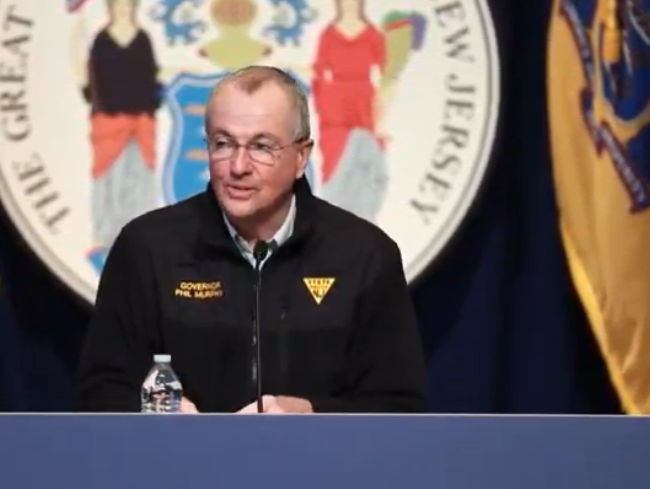The Irony of the Murphy Budget

Interviewed by NJ Spotlight News after Phil Murphy’s budget address today, Sen. Steve Oroho, the Sussex County Republican, called it an “election year budget.”
Well, no kidding.
Oroho then acknowledged that no tax increases were being proposed, but said Murphy hasn’t done anything to eliminate taxes he previously created.
Hard to see how far that argument goes.
Like all budgets in election years, the fiscal plan the governor unveiled in a pandemic-driven, pre-recorded speech today arrived with the gubernatorial election less than nine months away.
And it’s certainly more good news here than bad – for both the state and Democrats.
Murphy used his budget address to hype both past accomplishments and those he hopes to come. Here they are.
New Jersey Transit, he said, is running better than it was four years ago, and what’s more, this is the fourth year with no fare increase.
Thanks to New Jersey creating its own health exchange under the Affordable Care Act – as opposed to letting the feds run it – more people have signed up for health insurance and rates actually have dropped.
A big investment in “clean energy” (think wind) is a key part of improving the state’s infrastructure.
For the first time in years, the state is making its full annual pension contribution – $6.4 billion.
Aid to K-12 school districts is being increased by about $700 million, which Murphy said, brings the total increase during his tenure to $1.5 billion. Murphy, like many others, likes to say that more school aid can stabilize property taxes, but that’s often only true in the abstract. There’s no mandate that school districts getting increased money from the state use it to reduce taxes.
The governor took credit for what he says have been some of the smallest average property tax increases in years, but, in truth, that’s not very persuasive. Most New Jerseyans want reduced property taxes, as hard as that is to accomplish.
Still, this was a very rosy outlook, especially during a pandemic.
But there was a seeming curious fact that popped up in the press release on the budget sent out by the governor’s office. That was that the nearly $45 billion plan (Murphy, by the way, never mentioned the total budget) assumes a 2.4 percent growth in revenue over the previous fiscal year. This budget would run from July 1, 2021 to June 30, 2022.
And then it adds, “Revenue projections have improved in part due to record high stock markets, federal stimulus …. as well as what economists describe as a K-shaped recession.” In blunt terms, that means middle and high income households are doing better in the pandemic than lower income households.
In some ways this can seem obvious, but it’s also quite significant. Average income levels in New Jersey, comparatively speaking, are high, so that explains the rosy revenue numbers.
The irony here is that back last summer, the governor was predicting dire financial straits and looking to borrow billions to cope.
None of that was mentioned in the speech.
As he did for his State of the State address six weeks ago, Murphy spoke on the stage of an empty theater. And like that address, the budget speech was preceded by a commercial of sorts – Murphy staffers and cabinet members talking on video about the budget process. One could have done without that.
Republicans, like Oroho, have reacted predictably.
Assemblyman Jay Webber said Murphy continues to fail on property tax relief.
Jack Ciattarelli, the presumptive Republican gubernatorial candidate, called the budget an “insult” to those struggling to pay their bills and “hold onto their jobs.”
The overriding challenge for Republicans is that they are outnumbered in the state by more than a million registered voters.
And the particular challenge between now and November is convincing so-called independents that all the good things Murphy talked about today are really not all that good.










Leave a Reply